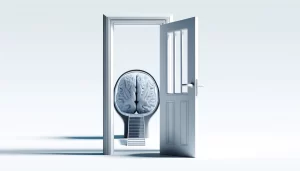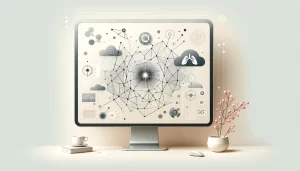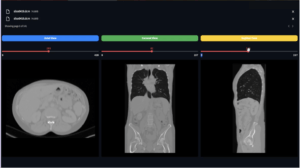This article will cover the life of a programmer. We’ll talk about what it takes to become a programmer; the good, the bad, and the ugly.

A programmer’s day-to-day life is generally spent reading code, fixing errors, and writing new pieces of code. Programming is a highly mentally demanding job as it requires constant problem-solving. In addition to these tasks, there are also meetings with other programmers and stakeholders in the project.
The Good:
Programmers have a high salary. They work in an industry that is growing rapidly and as an added bonus, they work on some of the most challenging problems in society today.
The Ugly:
Programmers are faced with long hours, irregular deadlines, and tight deadlines for projects. They’re often exposed to high levels of stress and many other detrimental factors that come with being a computer programmer.
The Bad:
All these negatives can wear down programmers who don’t have enough time to decompress or enjoy their lives outside of work.
Introduction: What is a day in the life of a programmer really like?
keywords: what is programming, what does programming mean)
Programming is a skill that requires mental agility and creativity. Software engineers need to always be learning and developing new skills. Moreover, it is not just about writing code. It also requires the ability to work with people and understand their needs, which means that software engineers need to be good communicators as well as problem-solvers.
The Programmer’s Life: A Look at the Pros and Cons
In this section, I will be talking about the life of a programmer. I will discuss some of the benefits and drawbacks of being a programmer.
Benefits:
1. The programmers’ life is awesome. They have the potential to make a lot of money, even if they don’t work hard for it.
2. Programmers can own their time, as they can create their own schedule and work on whatever they want whenever they want to.
3. Programmers are often able to learn new skills with ease and are therefore never bored or stuck in a rut for long periods of time due to lack of skillsets or interest in what is going on in their profession at the moment.
4. Programmers have lots of opportunities to do things like travel, meet new people…
What Do Developers Like to Code?
Programmers are the backbone of the IT industry. They are responsible for the creation, development, and maintenance of computer software. They have a critical role in many organizations around the world due to their extensive skill set.
Developers have a wide range of programming languages that they can use. However, some languages may be more popular than others depending on what type of project is being developed. The following list includes some common programming languages that programmers may use:
- Java,
- C++,
- C#,
- Python,
- Ruby,
- Scala
Programmers on Coding for Fun
Coding is a skill which is in high demand. And it’s no longer only for coders, IT professionals, or programmers. It has become a useful life skill for students and adults alike.
Learning how to code will create opportunities that you otherwise wouldn’t have had access to. For example, if you know how to code then you can learn how to make an application that people need and make some money off of it.
Python vs. JavaScript vs. Ruby vs. C++ — Which One Should You Learn First?
For those who want to start programming, there are four popular languages that you can choose from: Python, JavaScript, Ruby, and C++.
Python is a great language for beginners because of its simple syntax and easy-to-learn features. JavaScript is also an intuitive language to learn if you have some experience in HTML or CSS because of its popularity in web development. However, it’s easy to think that JavaScript is the answer for everything and it can’t do anything as good as Python or Ruby.
Ruby has a long history with Rails framework which makes it a favorite among startups due to its speed. But Ruby is also complex and difficult for beginners to understand code written by experienced developers.
C++ could be the best language to use when you need performance optimization, but it’s not easy to learn.

What Skills Should I Have to Become a Good Programmer?
Computer programmers are people who write and test software for a living. The most important skills for this job are to have knowledge about all aspects of the programming, be able to work well with others and be able to take criticism.
The following are some of the skills that programmers must possess:
- Knowledge about computer science topics such as algorithms, data structures, and coding languages like Python or Java.
- Strong problem-solving skills and excellent analytical reasoning abilities.
- Ability to handle mathematical concepts such as data structures and abstract algebra that form the basis of computer science.
- Ability to work well in a team environment where there is constant feedback and discussion about what is being done.
What’s the Difference Between Computer Programming & Coding?
Programming is the process of designing and writing software. Coding is a technique that people who program use to make programs.
Coding is a subset of programming and it is only a part of the process. It’s crucial for programmers to know how to code, but there are plenty of programmers who don’t know how to code at all.
Conclusion: Why Being A Great Programmer Makes You A Great Employee
Programmers are essential to the success of any organization. They build the tools, which enable other team members to do their job efficiently. Programmers are also the ones who design, maintain, and update the company’s technologies.
As a great programmer you should be able to:
- Understand your client’s business needs and goals
- Identify the right tools for building the solution
- Determine what will make your project successful and ensure it gets delivered on time



